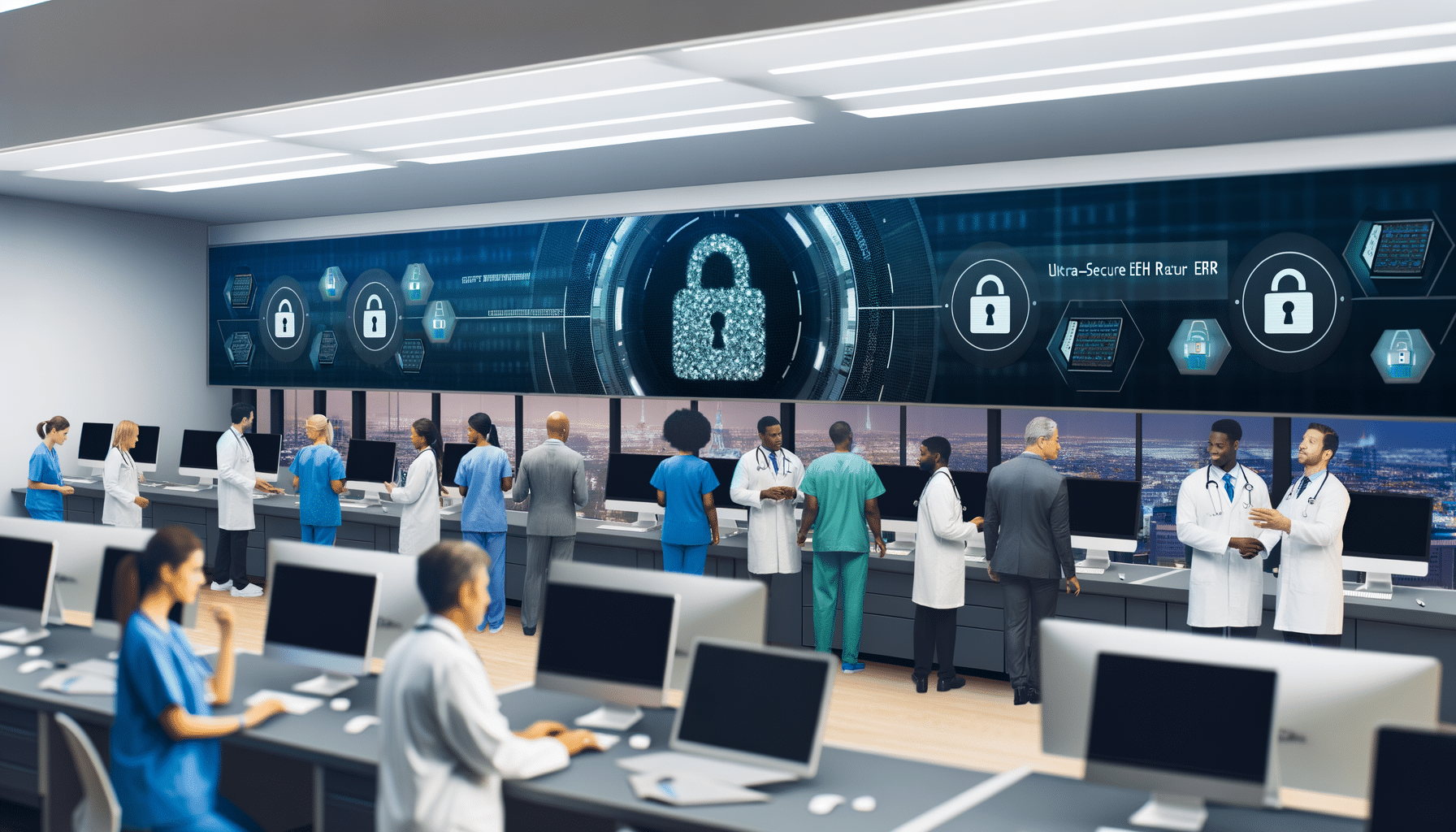- EHR Management
- November 20, 2023
Best Practices for Securing Electronic Health Records (EHR)

Transforming EHR Security with Advanced Technologies
In the continuously evolving world of healthcare, managing electronic health records (EHR) securely is not just a responsibility but an obligation. As a founder of RecordsKeeper.AI, a revolutionary platform dedicated to transforming record management with AI and Blockchain, I understand the urgency and necessity of enhancing EHR security within healthcare institutions. Let’s delve into effective strategies that can protect sensitive patient data and ensure compliance with stringent regulations.
Understanding the Challenges of EHR Security
The digitization of health records has introduced unprecedented levels of convenience and efficiency in healthcare organizations. However, it has also exposed vulnerabilities that could compromise patient privacy. Cyber threats, unauthorized access, and compliance issues form a trifecta of challenges that demand immediate attention. Addressing these effectively requires an integrated approach revolving around technology, policy, and education.
Embracing Robust Authentication Methods
One critical cornerstone of EHR security is robust user authentication. Multifactor Authentication (MFA) is no longer optional; it is essential. By demanding a second form of identification beyond passwords, MFA significantly reduces the risk of unauthorized access. Biometric authentication, such as fingerprint or retina scans, can also be integrated to enhance security further.
Implementing Advanced Encryption Technologies
Encryption remains one of the strongest defenses against data breaches. Implementing end-to-end encryption ensures that data remains secure both at rest and during transmission. With encryption, even if data is accessed unlawfully, decrypting it becomes an insurmountable challenge for cybercriminals. Investing in advanced encryption tools will add an impervious layer of protection.
Employing Blockchain for EHR Integrity
Blockchain technology is a game-changer for maintaining the integrity and immutability of health records. By utilizing blockchain, we can create an unalterable record of every action or change made to a health record. This transparency not only ensures data integrity but also fosters trust among patients and healthcare providers. Knowing their data remains unchanged and tamper-proof, patients are more likely to engage with digital health solutions.
Enhancing Data Access Controls
Access control mechanisms define who gets access to which data and when. Role-Based Access Control (RBAC) can limit data access to authorized individuals only, based on their role within the healthcare organization. By implementing strict access controls, organizations can minimize the risk of internal breaches. Periodic audits and real-time monitoring of access logs can help identify and address potential threats swiftly.
Promoting Data Anonymization and Masking
Encrypting sensitive patient information must be complemented by data anonymization or data masking techniques. These methods replace identifiable information with artificial identifiers, ensuring that even in the event of a data breach, protected health information remains secure. Not only does this practice protect privacy, but it also enhances compliance with regulations like HIPAA.
Establishing a Culture of Security Awareness
All technological measures become ineffective if the human element is disregarded. Regular training and awareness programs should be a staple in any healthcare institution. Employees must be educated on identifying phishing attempts, creating strong passwords, and understanding protocol during a security incident. Creating a culture of security awareness ensures that every team member plays an active role in safeguarding EHRs.
Incorporating Compliance Automation Tools
Maintaining compliance with regulatory standards such as GDPR, HIPAA, and others is a daunting task. Automating compliance processes using specialized tools can alleviate this burden. These tools track compliance metrics, generate audit reports, and ensure that regulatory workflows are followed to the letter, significantly reducing the risk of violations and penalties.
Final Thoughts
Securing electronic health records is an ongoing challenge, but with the right strategies and technologies, it can be achieved effectively and efficiently. RecordsKeeper.AI is committed to supporting healthcare institutions in their mission to safeguard EHRs with our robust AI and Blockchain-powered platform. Together, we can transform challenges into opportunities and build a more secure future for healthcare.
I invite you to join the conversation and explore how RecordsKeeper.AI can transform your record management processes. Together, let’s unlock the potential of technology to revolutionize EHR security in healthcare. For more insights, follow me, Toshendra Sharma, as I continue to share my entrepreneurial journey and innovations in this vital field.
Toshendra Sharma is the visionary founder and CEO of RecordsKeeper.AI, spearheading the fusion of AI and blockchain to redefine enterprise record management. With a groundbreaking approach to solving complex business challenges, Toshendra combines deep expertise in blockchain and artificial intelligence with an acute understanding of enterprise compliance and security needs.
Related Posts

How Blockchain is Revolutionizing HR Record Management
Discover how blockchain streamlines HR processes with efficient record-keeping.
- February 21, 2023
Archives
- January 2025
- December 2024
- November 2024
- October 2024
- September 2024
- August 2024
- July 2024
- June 2024
- May 2024
- April 2024
- March 2024
- February 2024
- January 2024
- December 2023
- November 2023
- October 2023
- September 2023
- August 2023
- July 2023
- June 2023
- May 2023
- April 2023
- March 2023
- February 2023
- January 2023
- December 2022
- November 2022
- October 2022
- September 2022
Want to get more content like this?
Signup to directly get this type of content to your inbox!!
Latest Post
Document Control for Equipment Maintenance
- January 20, 2025
Managing Records for Multiple Clients
- January 19, 2025
Handling Conference Documentation
- January 18, 2025
Setting Up Department Record Reviews
- January 17, 2025





